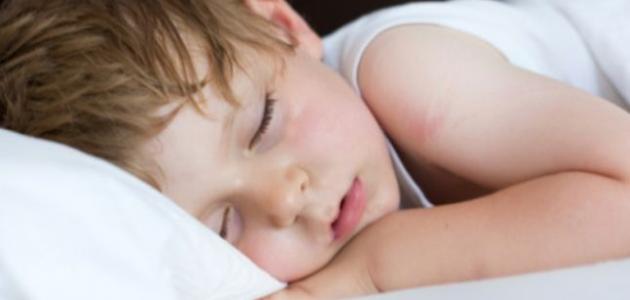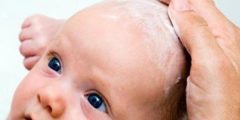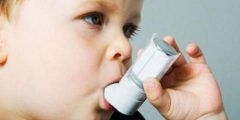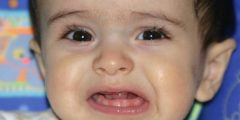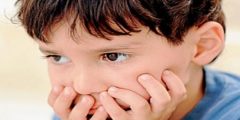Causes of sweating during sleep in children
Night sweats are the occurrence of severe sweating during sleep, and can be divided into two types depending on the cause, which are:
- Primary sweating: Primary sweating is sweating that occurs without a clear health reason, or occurs as a result of feeling very warm.
- Secondary sweating: Secondary sweating is general sweating throughout the body resulting from medical reasons.
Bedroom temperature rises
Children need deep sleep every night to build and repair their bodies. If the child’s bedroom is hot or humid, this can cause night sweats. Since the child’s body is not fully developed, he is unable to automatically regulate his temperature when the weather is warm. Which causes an increase in the size of the sweat glands, which leads to sweating. Using a lot of blankets when the child is sleeping can also lead to an increase in night sweats, because children are unable to get rid of heavy clothes and bedding.
Idiopathic night sweats
Night sweats can occur in children for no apparent reason. Due to the presence of a large number of sweat glands in a young child compared to adults, because they are smaller in size, in addition to their bodies’ inability to balance the body temperature like the bodies of adults, as we mentioned previously, this in turn may It leads to night sweats for no reason at all.
Read also:Abu Saffar symptoms for children
genetic factor
Sweating can run in the family, as the child may have the same genes as the parents that increase the activity of the sweat glands.
infection
Night sweats may be due to infection, examples of which include:
- Colds: (in English: common cold), colds usually occur as a result of a harmless viral infection, and when the child’s body fights the infection, night sweats may occur, and children under the age of six are at greater risk of contracting colds than adults, and among the symptoms of the common cold are: In children the following:
- extreme tiredness;
- Sore throat.
- Mild fever.
- headache;
- coughing;
- Anorexia.
- muscle pain;
- Increased thickness of nasal mucus and change in color to yellow or green.
- Bacterial infection: Bacterial infections can cause night sweats in children, including bacterial endocarditis or tuberculosis.
Problems related to the nose, lungs and throat
Some health problems may be linked to the occurrence of night sweats, such as some problems that affect the respiratory system, such as the lungs, throat, and nose. It should be noted that children with these health conditions do not necessarily suffer from night sweats, but it has been found that children who suffer from night sweats are more likely to suffer from night sweats. To suffer from other health problems, such as:
Read also:When does the baby's blower close?- asthma.
- Allergy.
- Runny nose.
- Tonsillitis.
- Skin allergic reactions such as eczema.
- Anger and mood disorders.
- Hyperactivity.
- Sleep apnea is a condition in which airflow is obstructed near the upper airway, resulting in snoring. Night sweats are one of the symptoms that occur in children who suffer from sleep apnea. .
hormonal changes
The sweat glands become more active in children when they approach puberty, because the body produces more hormones, so sweating occurs naturally at this age, and puberty can occur at an early age, as it begins in girls at the age of 8 and in boys at the age of 9. Years, and in general, puberty may lead to increased sweating, including night sweats, and may also lead to the appearance of the smell of sweat.
other reasons
Other causes that lead to night sweats include:
- Hypersensitivity pneumonitis: Hypersensitivity pneumonia (HP), which is a type of pneumonia that resembles an allergy, and may occur as a result of inhaling dust or mold, causing swelling and redness of the lung. Hypersensitivity pneumonia is more common in children with asthma and some other types of allergies. The affected child may suffer from night sweats in addition to other symptoms, such as:
- shortness of breath.
- Fever and chills.
- sadness.
- Dry cough.
- Fatigue
- Pediatric cancers: Lymphomas and some other types of cancer are very rare causes of night sweats, and Hodgkin lymphomas can occur in children under 10 years of age, and there are some symptoms that may appear when cancers occur, including: What follows:
- fever.
- Nausea and vomiting.
- difficulty swallowing;
- Anorexia.
- Weight loss.
- coughing;
- Breathing difficulty.
- Other cases: There are some conditions that may cause night sweating, but there are not sufficient studies linking them to night sweating: such as gastroesophageal reflux diseases, hyperthyroidism, and immunodeficiency. Low blood sugar (in English: Hypoglycemia).
Read also:Motor development of the child
Reasons to see a doctor
Non-continuous night sweats do not often cause concern, but you should consult a doctor if night sweats occur repeatedly, or if they are accompanied by some symptoms such as: pain, fever, chills, or unplanned weight loss. Parents are advised to keep a diary to record how long it lasts. The child is sweating and any other symptoms, which in turn helps the doctor find out the cause.
